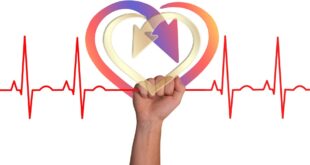7 Warning Signs of Heart Disease Women Should Know
Heart disease is the leading cause of death among women globally. According to the American Heart Association, one in three women dies from heart disease. However, not all women present typical symptoms of heart disease, making detection and diagnosis challenging. Therefore, women must be aware of the warning signs that may indicate heart disease. Here are seven warning signs of heart disease women should know.
1. Chest Pain or Discomfort
Chest pain is a symptom commonly associated with heart disease. However, many women do not experience chest pain as their primary symptom. Instead, they may experience discomfort, pressure, or tightness in their chest that goes away with rest.
2. Shortness of Breath
Shortness of breath is a common symptom of heart disease, and it may occur even with little physical activity. If you experience unusual shortness of breath that persists, it may be a sign of heart disease.
3. Fatigue
Chronic fatigue is another warning sign of heart disease in women. If you feel tired after little physical activity, it may be a cue to seek medical attention.
4. Nausea, Sweating, or Lightheadedness
Nausea and lightheadedness are symptoms commonly experienced by women in the early stages of heart disease. If you experience any of the above symptoms, coupled with unexplained sweating, it may be a sign of an underlying heart condition.
5. Pain in the Neck, Jaw, Shoulder, or Upper Back
Some women experience pain in the upper body, neck, or back that feels like pressure or squeezing. It may occur with or without chest pain and could indicate heart disease in women.
6. Swollen Feet, Ankles, or Legs
Swelling in the lower extremities is another warning sign of heart disease, as the heart struggles to circulate the blood efficiently. If you notice swelling in your legs or lower part of the body, it may warrant a doctor’s attention.
7. Irregular Heartbeat
An irregular heartbeat, also known as arrhythmia, is another warning sign of heart disease. Heart palpitations, skipped or extra beats, may indicate an underlying heart issue that requires prompt medical treatment.
The Bottom Line:
As highlighted, heart disease in women can be challenging to detect due to atypical symptoms. However, by paying attention to physical cues such as chest pain, shortness of breath, and fatigue, women can detect heart disease early and get prompt medical attention, ultimately saving lives.
 Mind Uncharted Explore. Discover. Learn.
Mind Uncharted Explore. Discover. Learn.



